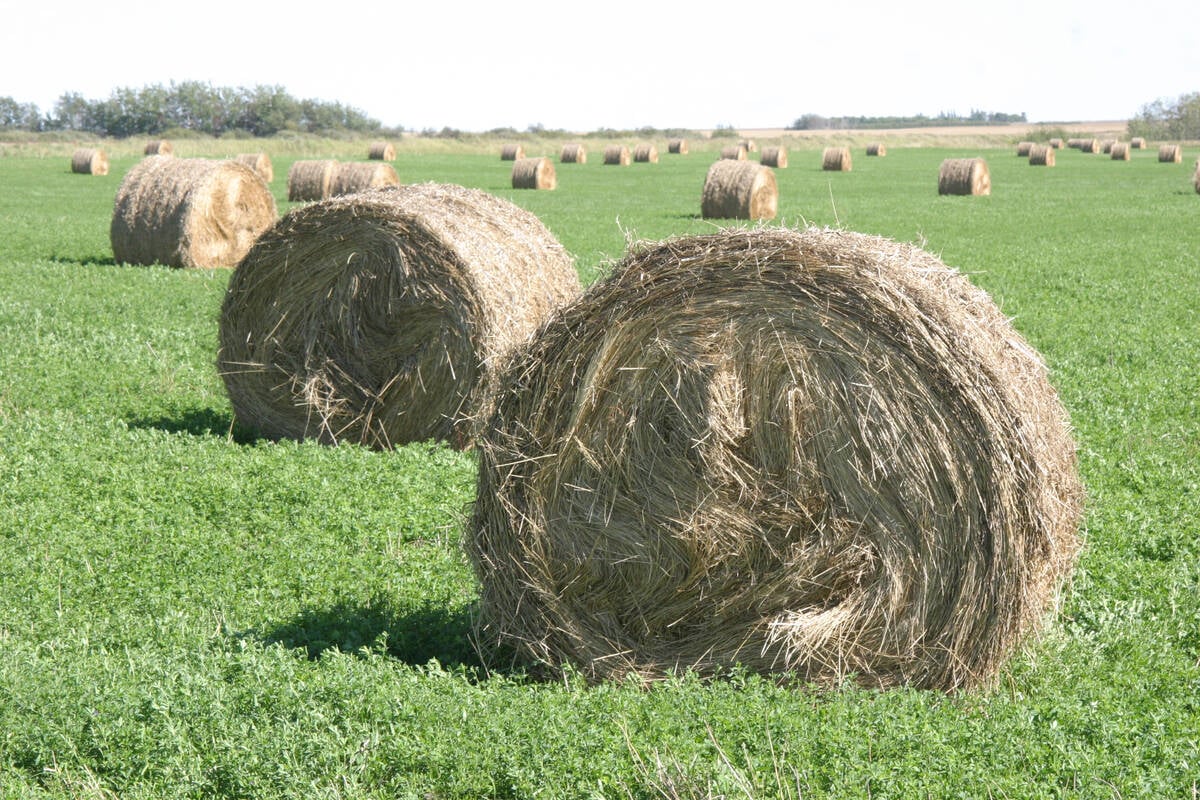The European strain of a methicillin-resistant superbug has been discovered in Ontario pigs and pig farmers, according to an associate professor at the University of Guelph’s Ontario Veterinary College.
Dr. Scott Weese, a pathobiologist who worked on the study recently published in the journal Veterinary Microbiology, said methicillin-resistant staphylococcus aurea, commonly known as MRSA, causes few problems in pigs.
However, the discovery is important because it shows the superbug, which he believes was brought to the province by a human host, can be transmitted from animals to humans and vice versa even when contact between the two groups is limited.
Read Also

Breaking down successful winter feeding into six steps
It’s that time of year when it is important to start planning for a cow herd’s winter feeding program. Here are six steps I think are necessary to consider when getting your feed tested.
“We’ve got a pig strain that can be spread to people, and we’ve also got this human strain that can be spread to pigs,” he said.
“So it moves in both directions.”
First discovered in the Netherlands in 2003, a study at the time found that 25 percent of Dutch pig farmers were carriers. Since then it has shown up in Germany, Denmark, Austria, Italy, South Korea, Singapore and now Canada.
Only two cases of infection in hogs have been reported, with symptoms resembling greasy pig, a form of dermatitis caused by staphylococcus hyicus.
In humans, however, MRSA can lead to small red bumps resembling boils, pimples or spider bites that develop into painful abscesses that must be drained. More serious cases have involved rapidly fatal illnesses such as blood infections and serious pneumonias.
One to two percent of the general human population hosts the superbug, he added, mainly in their nasal passages. The vast majority of carriers are colonized by the bacteria and never develop an infection.
People working in close proximity and prone to skin abrasions, such as athletes, children in day cares and hospital patients, make up the majority of clinical cases. In the United States, statistics show 90,000 infections reported in 2006, he said. Infections can usually be treated with vancomycin, a drug reserved as the weapon of last resort against antibiotic-resistant bacteria.
Earlier studies found that MRSA could be transmitted back and forth between domesticated animals such as dogs, cats and horses. However, human-animal contact between those animals tends to be different from that of pigs and pig farmers, he said.
Weese found that five out of 25 Ontario pig farmers, or 20 percent, tested positive for MRSA in the study conducted last winter.
Twenty five percent of the pigs on the 20 farms surveyed, or 285 animals, tested positive for the two main strains. Sixty percent were found to have the European strain.
The strain common to North America, called USA100, was also found. There was no difference in the rates for suckling, weanling and finisher pigs.
“The concern is that it started out in pigs, then spread to people who work with pigs, and now is spreading into the general population,” said Weese, who added that the risk of food contamination is minimal under normal cooking practices.
More study is needed to determine how MRSA is transmitted, he added. In the meantime, pig farmers can reduce the risk of spreading the bacteria through routine hygiene measures, such as washing their hands frequently while in the barn.
“The biggest source of MRSA is people’s hands. They touch a pig or an infected area and then touch their nose. That’s a prime means of MRSA transmission,” he said, adding it is unknown if dust in pig barns is another possible source of infection.
A report from the Canadian Press quoted Dutch microbiology professor Andreas Voss as saying a follow-up study in 2006 found the colonization rate in the country’s pig farmers had risen to 50 percent three years after the initial survey, and now 20 percent of MRSA cases in the Netherlands involve the new strain.
According to CP, Voss said aggressive measures for preventing the spread of MRSA to vulnerable patients in the Dutch health care system include the isolation and testing of any person suspected of having contact with pigs upon entering hospital, such as farmers, their children and veterinarians.
Weese said the potential link between antibiotic use in large indoor hog operations and MRSA in pigs is unknown.
“We don’t know. It’s an area that needs to be looked at. It’s logical that there might be an issue there because antibiotic use can lead to resistance, but we don’t know specifically what its role is at this point.”














